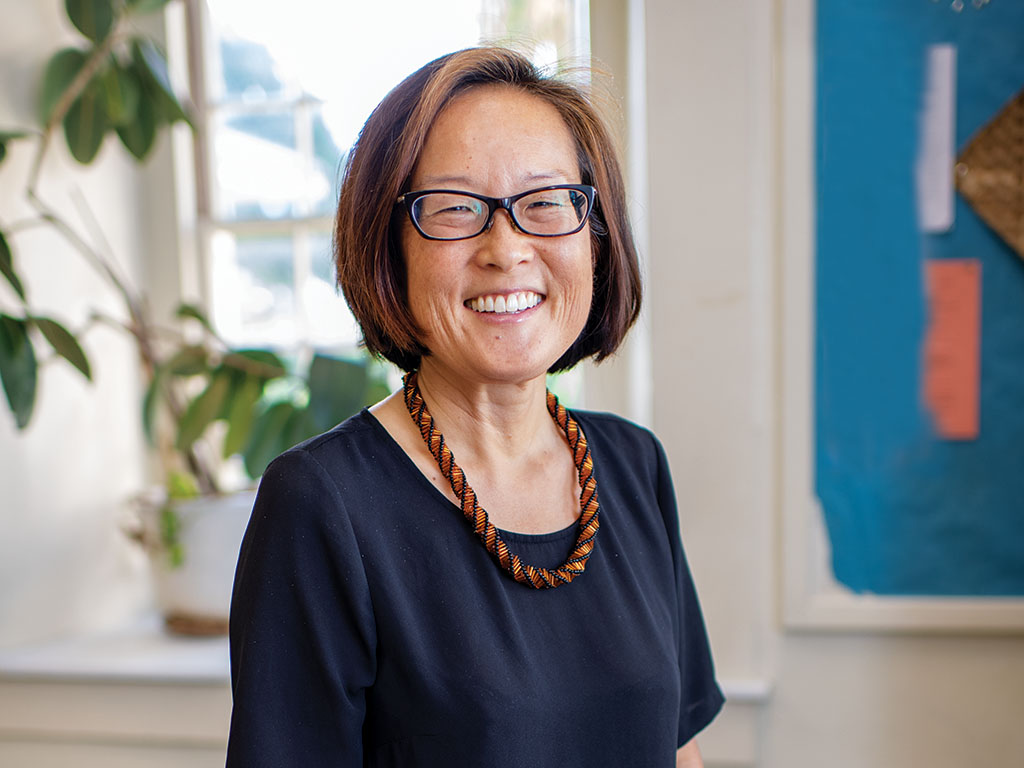After journeying across the country and in Asia, Stephanie Han – author, educator and self-proclaimed woman warrior – arrived at Punahou last fall to teach English and American Studies in the Academy. Prior to Punahou, she was an adjunct professor at Hawai‘i Pacific University. She also taught at Island Pacific Academy, Harvard-Westlake School in Los Angeles and overseas. Alongside teaching, Han writes fiction. In 2016, she published a collection of short stories, “Swimming in Hong Kong,” a finalist for the AWP Grace Paley Prize for Short Fiction and winner of the Paterson Fiction Prize. We spoke to Han about her past experiences and what motivates her to write.

What led you to write these stories?
I was trying to figure out different ideas of place and identity and to get a handle on what I perceive to be women’s roles and experiences. The stories are written primarily from a female perspective – women of various ages and time periods, in Hong Kong, Korea and the United States – who question ideas of nation, community and individual roles. I’m really interested in ideas of women because they remain underrepresented.
Does this collection explore your own life?
It was kind of a personal journey, and it put together a lot of pieces in terms of how I perceive my cultural and racial identity. My father is from Seoul, and my mother is from the very first Korean immigrant wave to the United States. I’m a descendent from the third boat out of Korea in May 1904, so I’m a cross between first- and fourth-generation Korean. I also lived in Korea in the late ’90s. Prior to coming to Hawai‘i in 2015, I lived in Hong Kong to complete my PhD in English Literature from City University of Hong Kong.
What is your connection to Hawai‘i?
Growing up, Hawai‘i was a place of weddings, funerals, birthdays and summers. My family moved every year until I was about nine. The only place I have not lived in the continental United States is the Pacific Northwest. I lived in the south, New York, Los Angeles, New England, the Midwest. The reason I came back here to Hawai‘i was probably because this was the only place that we returned to. And my maternal family was from here.
How did the title come about for the book?
It’s the title of the last story in the collection, which centers on an African-American professional woman who learns how to swim in a public Hong Kong swimming pool from an older Chinese man, even though they don’t speak the same language. It’s about miscommunication, but at the same time, a bridging of human understanding. We come to understand each other in ways that are unpredictable and in ways that we don’t anticipate. We have to cross a lot of different boundaries
– cultural, gender, racial and geographic. I’m really interested in questions of global identity – how we can figure ourselves out within the context of a global identity.
What are you working on now?
I’m writing a book set in a prep school. It’s going to be based on my years at Phillips Academy Andover. I was 13 when I went away to boarding school. There was a population of Asian-American students, but there was no Asian representation in terms of faculty, ideology or anything else. Girls of color experienced a lot of stress and damage. The boys of color were able to get mentoring through team sports, but as a girl of color, it was difficult to get any kind of support. I’m very interested in girls’ education – how girls are fostered at both single-sex and in coed environments.
As a writer, what do you like about teaching?
Teaching informs my writing, and writing informs my teaching. When I experience lags in writing, I’ll sometimes hear an insight from a student, and I’ll get inspired to think about a different idea Through writing, you can also teach critical thinking. There is also art for art’s sake, and I do think that has value – aesthetic value – and it is important for us to enjoy the beauty of literature and writing in and of itself. There is also an idea of learning to speak your truth and telling your own story, because if we don’t control our narratives, others control them for us. I want students to be empowered with that idea. We create the story of our lives.
